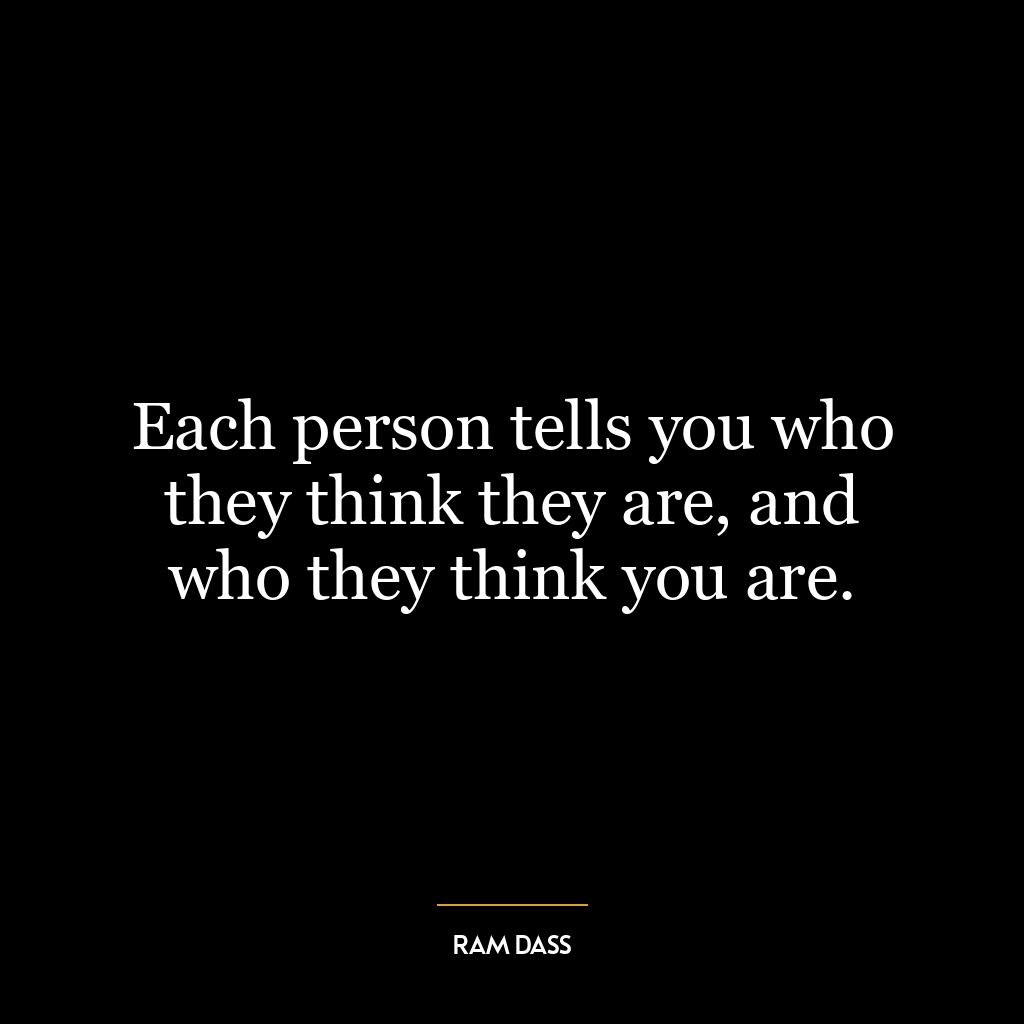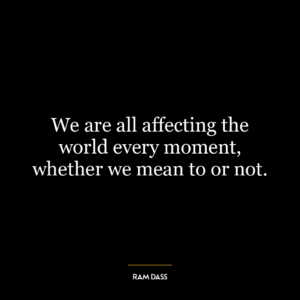Each person tells you who they think they are, and who they think you are.
This quote is a reflection on the nature of human interaction and self-perception. It suggests that when we communicate, we are not only sharing information about ourselves but also revealing our perceptions of the person we are communicating with. This process is not just about sharing facts, but also about expressing our beliefs, attitudes, and interpretations.
When someone says, “I am a hard worker,” they are not only telling you about their work ethic, but also implying their belief that hard work is a valuable trait. Similarly, when someone tells you, “You are intelligent,” they are not just complimenting you, but also expressing their belief that intelligence is something to be admired.
The quote also implies that our self-perceptions and perceptions of others are intertwined. We form our self-concepts based on how we believe others see us, and we form our perceptions of others based on how we see ourselves. This dynamic interplay shapes our identities and relationships.
In today’s world, this idea has significant implications. In the age of social media, we are constantly broadcasting our self-perceptions and perceptions of others to a wide audience. This can lead to a kind of feedback loop, where we adjust our self-perceptions and perceptions of others based on the responses we receive.
In terms of personal development, understanding this dynamic can help us become more self-aware and empathetic. By paying attention to what we communicate about ourselves and others, we can gain insights into our values, biases, and insecurities. This awareness can help us challenge negative self-perceptions and develop more positive relationships.
Moreover, understanding that our perceptions of others are based on our self-perceptions can help us be more open-minded and accepting. Instead of assuming that our perceptions of others are objective truths, we can recognize them as subjective interpretations shaped by our own experiences and beliefs. This can help us appreciate the diversity of human experiences and perspectives, fostering greater empathy and understanding.















